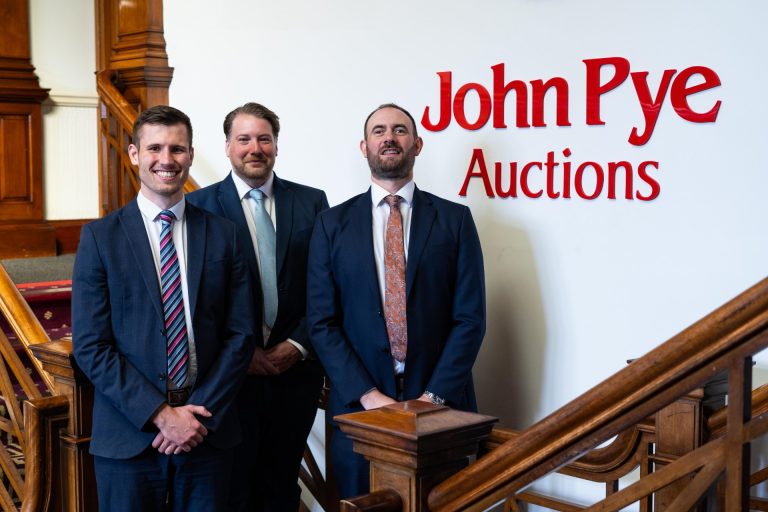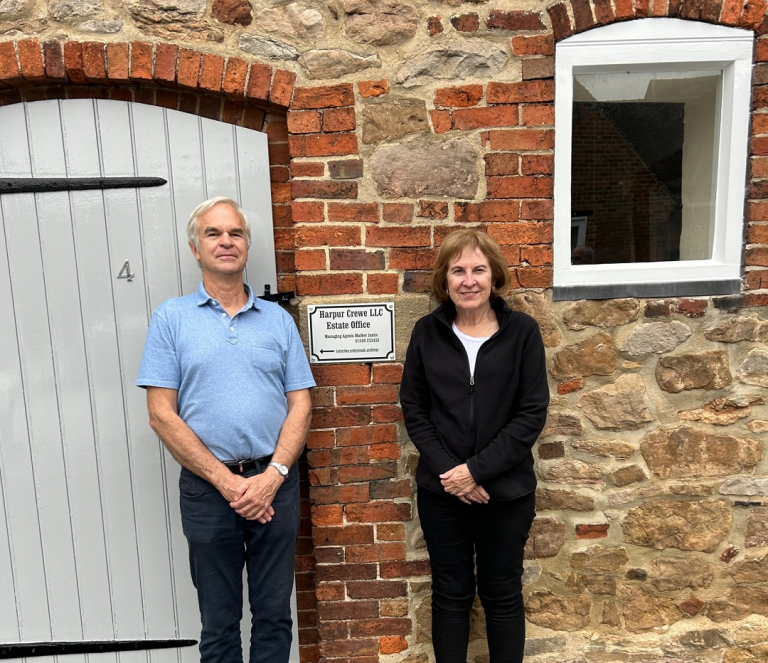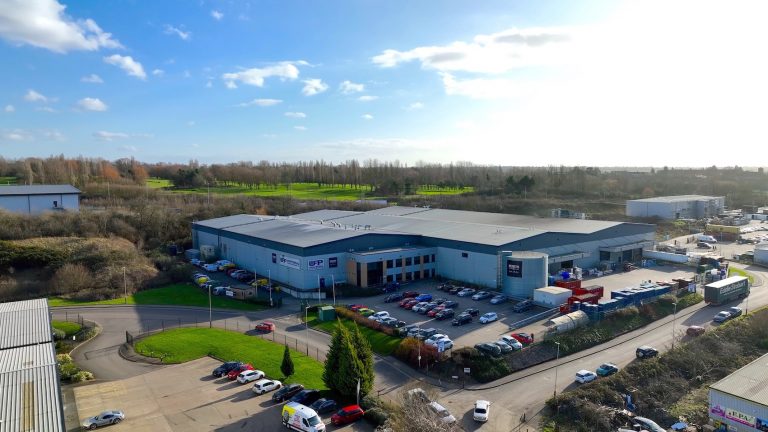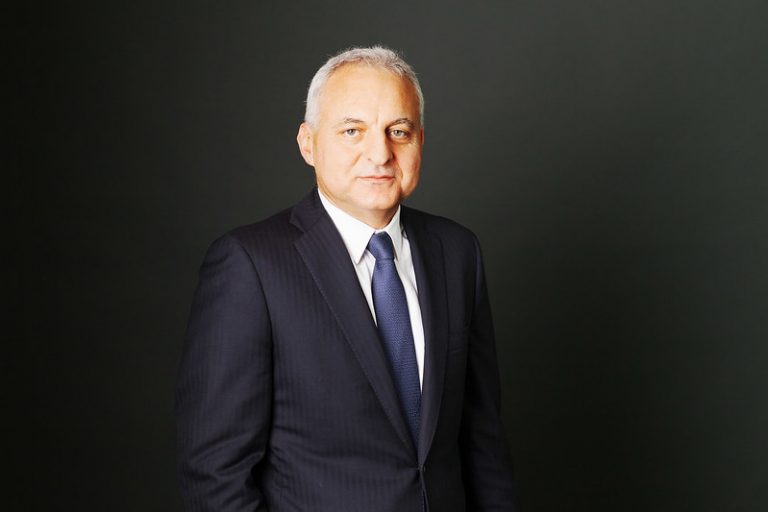Inflation stays stubborn
New Central Library set for end of November opening
- Feature-book walls and shelving to display a large collection of titles
- Free Wi-Fi and free access to computers, laptops and tablets
- A café and ground floor reception area which can be converted into a performance space
- Specialist and rare collections room for local study material
- Learning lab for special activities and school class visits
- Meeting rooms
- Exhibition space
- Creative design areas
- Business Intellectual Property Centre for the city.
John Pye makes trio of associate director appointments
Nottingham-headquartered national auction house John Pye & Sons Ltd has made three senior internal promotions; Alan Avery, commercial manager; Matt Ganner, head of IT; and Bruce Burton, financial controller, have all been promoted to the position of associate director with immediate effect.
The announcement comes as John Pye looks to capitalise on a solid period of growth, including its recent expansion into Europe, winning five new Government and local authority tenders this year and developing existing services to meet client requirements.
These appointments will bolster the senior management team, ensuring it is poised to manage and deliver on director and shareholders’ expectations.
Adam Pye, Managing Director at John Pye, said: “I am delighted to announce, on behalf of the John & Sons Ltd board the promotion of three senior members of our current management team to associate director.
“Matt Ganner Head of IT, Bruce Burton, Financial Controller, and Alan Avery, Commercial Manager, will join the other associate directors of Paul Hird, Head of Government & Luxury, Mike Vitale, Nottingham Site Manager, and Charles Loake, Joint Head of Business Assets.”
The appointments are recognition of Alan, Matt and Bruce’s added value to the business across commerce, IT and finance, and their proven desire to maximise returns to the company and deliver on customer expectations.
Adam Pye continues: “The business is moving rapidly and expanding almost monthly – we have just hit the £100m in sales in a year milestone. We know the business needs an effective forward-thinking senior management structure to oversee this growth and all three will be pivotal in helping us reach our goals.”
Alan Avery joined the firm in 2017 as commercial manager and is responsible for regular client, supplier and site visits to ensure a high level of quality and compliance across the company.
With key skills in data analysis and continuous business improvement, Alan supports implementation of new initiatives, boosting profitability, green credentials and creating an all-round better working environment. Working with procurement, Alan has aligned suppliers to match the business’s own sustainability goals.
Alan says: “To see and be part of a growing thriving company is an absolute privilege. The Board and company have provided me with a huge amount of support since joining the business and I’m extremely grateful for all the development I’ve received. I hope to continue making a positive contribution as John Pye goes from strength to strength.”
Bruce Burton is a chartered accountant and an active member of the Institute of Chartered Accountants in England and Wales (ICAEW). As financial controller, he works under the finance director with a team of ten direct reports and oversees the daily running of the finance department.
Through his experience, Bruce has been key in implementing continuous improvement within the finance team, driving efficiencies, embracing software and automation, plus building a team with the right skill set with the ability to continually develop.
Bruce said of his new post: “It is a great privilege to be appointed associate director alongside Alan and Matt. Myself and the finance team have worked tirelessly and made significant progress since my arrival, and this is huge recognition for all our efforts.”
Head of IT, Matt Ganner, began his career at John Pye in the marketing department, helping launch new departments, such as Property and Luxury Assets. Early on Matt demonstrated a strong interest in the statistical side of marketing and the auctions themselves.
Having moved over to the IT department, Matt oversaw many key IT transformations within the business, resulting in his appointment as head of IT.
Matt’s skills lie in bridging the gap between the departments and the auction process using technology, whether that’s extracting and analysing key data to improve user experience, to bringing in new devices and processes which allow for more efficient working at all levels of the business.
Speaking of his appointment, Matt says: “Having worked for the company for 10 years and being part of its incredible growth, I’m delighted that I’ll now be playing a more integral strategy-based role. I’m looking forward to taking the business forward and pushing the IT team and innovations to a new level.”
Mather Jamie host USA owners of Harpur Crewe Estate in Derby
Burts cooks up £6m investment into Leicester factory
Shoe Zone hails record profits
Frasers Group to acquire German sports retailer
Professional services group snaps up Leicester accountancy practice
Xeinadin Group, the professional services group, has acquired Alacrity Accountancy, a Leicester-based accountancy practice.
Alacrity Accountancy was established 20 years ago and services clients from a range of industries including healthcare, dentistry and property across the UK and internationally. The firm specialises in all aspects of general practice including accounts, taxation and business advisory or support services.
The new acquisition will bring significant resources to help both staff and clients prosper through the challenges and opportunities posed by AI and other emerging technologies.
This is the 15th acquisition announcement made by Xeinadin since Exponent’s investment and marks a key milestone in the group’s expansion. The move continues the growth of Xeinadin’s footprint and brings additional expertise into the group whilst maintaining its focus on becoming the most trusted advisor for founder-owned businesses.
Xeinadin Group CEO Derry Crowley said: “Welcoming Alacrity Accountancy under the Xeinadin Group is another great step forward in establishing our continued growth. With a laser-eyed focus on the needs of SMEs, Alacrity’s quality of services and clientele are an excellent fit for what we expect across the group. We look forward to working with the team.”
Alacrity Accountancy founder and director Viren Kotecha said: “Alacrity is excited to be joining the Xeinadin Group and expanding upon the shared vision of providing exceptional local accountancy services to owner-managed businesses.
“With the support and knowledge that will be available as part of the network of 135 offices, we will be able to improve and increase the level of services offered to our clients to assist them with their goals.”
Does video marketing provide a good return on investment (ROI)?
 The Power of Video Marketing
Video marketing is the use of video content to promote and market products or services. It can take various forms, such as explainer videos, product demonstrations, customer testimonials, vlogs, webinars, and so much more. What sets video marketing apart from other forms of content is its ability to convey complex information in a visually engaging and easily digestible manner.
Businesses that use video marketing grow their revenue 49% faster year-over-year than those who don’t, according to a report by Vidyard. Videos also generate significantly more engagement on social media platforms compared to text or image-based posts. A study by Buffer found that video posts receive 48% more views on average. What’s more, viewers retain 95% of a message when they watch it in a video, compared to 10% when reading it in text, as reported by Insivia.
Assessing the ROI of Video Marketing
To determine the ROI of video marketing, it’s crucial to consider both the costs associated with creating and promoting video content as well as the benefits that result from these efforts.
Costs of Video Marketing:
The Power of Video Marketing
Video marketing is the use of video content to promote and market products or services. It can take various forms, such as explainer videos, product demonstrations, customer testimonials, vlogs, webinars, and so much more. What sets video marketing apart from other forms of content is its ability to convey complex information in a visually engaging and easily digestible manner.
Businesses that use video marketing grow their revenue 49% faster year-over-year than those who don’t, according to a report by Vidyard. Videos also generate significantly more engagement on social media platforms compared to text or image-based posts. A study by Buffer found that video posts receive 48% more views on average. What’s more, viewers retain 95% of a message when they watch it in a video, compared to 10% when reading it in text, as reported by Insivia.
Assessing the ROI of Video Marketing
To determine the ROI of video marketing, it’s crucial to consider both the costs associated with creating and promoting video content as well as the benefits that result from these efforts.
Costs of Video Marketing:
- Production Costs: This includes expenses for equipment, software, hiring videographers or editors, actors, and other resources required to create high-quality videos.
- Time and Labour: The man-hours spent on conceptualising, scripting, shooting, and editing videos must also be factored into the costs. Note: If you hire a video production company such as Glowfrog, this will save you significant time and effort, and yield much higher quality video content for your brand.
- Distribution Costs: The cost of promoting your videos on various platforms, such as social media advertising, email marketing, and video hosting services.
- Opportunity Cost: The time and resources invested in video marketing could be spent on other marketing strategies, so there’s an opportunity cost to consider.
- Increased Brand Awareness: Video marketing can significantly boost brand recognition and trust, leading to long-term benefits.
- Engagement and Traffic: Engaging videos can drive more traffic to your website or social media channels, potentially leading to higher sales.
- Conversions: Videos can lead to higher conversion rates and sales, depending on the nature of your product or service.
- Educating Customers: Videos can educate customers about your offerings, reducing customer service enquiries.
- Search Engine Optimisation (SEO): High-quality videos can improve your website’s SEO, helping it rank higher in search results.
- Blendtec, a blender manufacturer, created a viral video series where they blended unusual items, such as iPhones and golf balls. This series led to a 700% increase in sales in a year, primarily due to the videos’ popularity.
- Dollar Shave Club used a humorous video to introduce their subscription-based razor service. Within 48 hours, the video received 12,000 orders, demonstrating the power of video in driving rapid sales.
- HubSpot’s Academy offers educational video content to their audience. This strategy increased their annual revenue by 200%, indicating that video marketing can be a powerful tool for businesses offering educational content.
- Red Bull’s video content, featuring extreme sports and stunts, has helped the brand establish a strong identity and reach a vast, engaged audience. While their ROI might not be easily quantifiable, their brand value has undoubtedly surged.
Universities contribute £6.3bn to East Midlands economy
As universities in the East Midlands prepare to welcome new students, a new report by London Economics has revealed that higher education makes a £6.3bn contribution to the region’s economy.
Commissioned by Universities UK (UUK), the report further reveals that universities support 53,800 full time equivalent jobs across the East Midlands – this includes those employed by local businesses such as restaurants and retailers who benefit from the economic stimulus universities create.
However, as the sector contends with challenges including a £1bn funding hole in domestic student tuition fees and the pressures created by the cost of living crisis, UUK says there is a pressing need to reform how universities are supported in order to sustain their positive economic impact.
Professor Dame Sally Mapstone DBE FRSE, President of Universities UK and Principal and Vice-Chancellor of the University of St Andrews, said: “The East Midlands is a thriving region with universities at the beating heart of so many of its local communities.
“As economic hubs in their own right, universities support and create a huge number of jobs across multiple sectors, meaning people up and down the country benefit financially, whether or not they have a degree. They also play a crucial role in creating the graduates, spin outs and start-ups that provide the basis for economic growth in future.
“The country’s continued investment in higher education institutions can and does pay back dividends; not just for the East Midlands, but the entire UK.”
Looking at the UK as a whole, universities support more than three quarter of a million jobs (768,000 full-time equivalent) and contribute £116bn to the UK economy – this rises to £130bn when the spending of international students is included.
The benefit to sectors from university activities in the 2021-22 academic year, across the UK are:
|
|
Economic Output |
FTE jobs |
|
Agriculture |
£0.6bn |
6,400 |
|
Production |
£12.6bn |
39,800 |
|
Construction |
£2.7bn |
9,200 |
|
Distribution, transport, hotels, and restaurants |
£15.4bn |
127,000 |
|
Information and communication |
£3.7bn |
16,000 |
|
Financial and insurance |
£6bn |
15,300 |
|
Real estate |
£9.7bn |
12,000 |
|
Professional and support activities |
£9.2bn |
74,700 |
|
Government, health & education |
£52.8bn |
444,200 |
|
Other services |
£2.9bn |
22,500 |
* Note: Totals may not add due to rounding.
Source, London Economics report.
The figures come as Higher Education Statistical Agency figures show a record 17,933 student start-up businesses now operate in the UK, while the National Centre for Entrepreneurship in Education (NCEE) forecast universities will help attract more than £2bn in funding for local regeneration projects.
Dr Gavan Conlon, Partner at London Economics, said: “There is no doubt about the contribution of the UK higher education sector to the East Midlands and the rest of the UK’s economy. With approximately 2.9 million students and 385,000 staff across almost 300 higher education providers, the sector is instrumental in driving economic growth in both the short run and longer term.
“Given the financial challenges institutions face, there is a need to provide both adequate resources to support teaching and learning activities, but also certainty in respect of research funding.”
Aside from producing a talent pool with highly sought after skills, universities provide local businesses and small enterprises with product development support, access to new markets, consultation services, incubators and research facilities and work with organisations to provide jobs for local people within their communities.
Three new business grants for Broxtowe
- UKSPF SME Energy Grant
- UKSPF Micro Business Grant
- UKSPF High Street Business Grant
Suite of support programmes unveiled for Greater Lincolnshire and Rutland businesses
Young people to learn entrepreneurial skills with new Chesterfield programme
Sustainable heating and cooling provider makes Chesterfield’s Northern Gateway Enterprise Centre its home
Government’s funding decision will not end stand-alone Greater Lincolnshire LEP
Millions to be invested in net zero glasshouse development near Lincoln
A new net zero glasshouse research and development facility is set to be built on the University of Lincoln’s Riseholme campus.
Acres of poppies planned for Remembrance by Derby firm
Derby-based Acres Engineering has embarked on a major initiative to raise money for the Royal British Legion (RBL).
The family firm, which is based in Melbourne and counts some of the world’s biggest names in rail, automotive and aerospace as its customers, is creating a 3-petal poppy for Remembrance Day, with all profits going to the RBL.
The idea was conceived whilst hosting a range of STEM activities at their recent open day to mark National Manufacturing Week.
As part of the event, Acres invited students from local schools to manufacture and take home their own poppy in order to understand the significance of Remembrance.
Acres themselves have a long and proud association with the armed forces as a Gold member of the Armed Forces Covenant.
This is an agreement that those who serve or who have served in the armed forces, and their families, should be treated with fairness and respect in the communities, economy and society they serve with their lives.
“We plan to manufacture at least 2,000 poppies,” explains Acres Engineering’s MD Luke Parker, “but we hope to actually make many more if the demand is there from our clients, suppliers, friends of the firm and other like-minded supporters, which we believe it is.
“Growing up in the local area I attended Ashby School and I was stunned when I learned that 144 ex-students are remembered each year from my old school alone. As such, we are ring fencing 144 of the initial run and donating them to Ashby School for their Remembrance garden.”
The project has been endorsed by veteran Brigadier Edward Wilkinson of the Worcestershire and Sherwood Foresters Regiment who added: “This Poppy will be a lasting memory wherever it is placed due to its construction. Its longevity will be a reflection of our Remembrance. It is fantastic what Luke Parker and Acres Engineering are doing to raise money for the Royal British Legion.”
The Acres Remembrance Poppy is available in single, large or bulk orders via their online shop.
Fall in corporate insolvencies a ‘false dawn’
A surprise decrease in the number of insolvent businesses in England and Wales should be viewed with caution and is far more likely to be a ‘false dawn’ than an indication of economic recovery.
This is according to the Midlands branch of insolvency and restructuring body R3 and follows latest statistics published by the Insolvency Service which show that corporate insolvencies decreased by 15.2% in September 2023 to a total of 1,967 compared to August’s total of 2,319, but when compared to September 2022’s figure of 1,688 they increased by 16.5%.
The government statistics also indicate that corporate insolvencies increased by 35.4% from September 2021’s total of 1,453 and by 112% from September 2020’s total of 928. There is also a rise of 30.4% compared to the pre-pandemic figure of 1,509 in September 2019.
R3 Midlands chair Stephen Rome, a director at law firm Thursfields in the region, said: “The September 2023 numbers are the highest we’ve seen for this month in four years as a combination of economic issues, director fatigue and the post-COVID insolvency lag see a rising amount of firms use corporate insolvency processes to resolve their financial issues.
“Compared to September 2022, more directors have turned to Creditors’ Voluntary Liquidations to wind down their businesses and more creditors have turned to Compulsory Liquidations to recover the debts they are owed. While the statistics for these processes are higher than they were pre-pandemic, administration numbers have yet to return to 2019 levels, although they are higher than this time last year.
“It’s clear that the challenging trading climate is taking its toll. Businesses are operating in a climate where people are cutting back on their spending on non-essential items, while at the same time the costs of operating a business remain high – and will only increase as the weather gets colder and the cost of borrowing and servicing existing debts get more expensive.
“Our message to company directors is simple: if you’re worried about your business, seek advice. It’s a hard conversation to have, let alone start, but you’ll have more options open to you and more time to take a decision if you begin it when your worries are fresh, rather than when they’ve spiralled.”






















